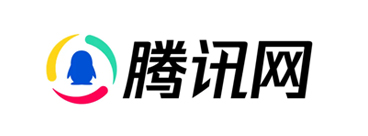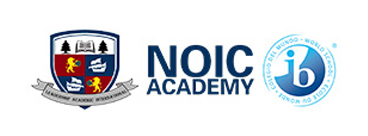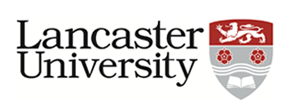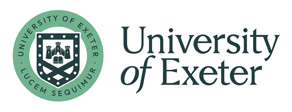宾大 生物技术专业简介
U Penn- Master of Biotechnology Program
宾夕法尼亚大学-生物技术
https://biotech.seas.upenn.edu/
宾夕法尼亚大学 生物技术硕士课程有三个TRACK(申请时要选which one)
Three parallel curriculum tracks:
1) molecular biotechnology, 分子生物技术
2) biopharmaceutical/engineering biotechnology, 生物制药/工程生物技术
3) biomedical technologies生物医学技术
申请材料清单:
1. Resume 简历
2. Personal Statement 个人陈述
3. Letters of Recommendation 推荐信 2封:
one must be from a faculty member who is familiar with the candidate’s scholarly abilities
4. Transcripts 本科成绩单
5. Application Fee 申请费
6. GRE optional: 选择性提供GRE
7. TOEFL/IELTS :
TOEFL Score Recommendations – a minimum of 100 is recommended for all programs. There is not a required score.
IELTS Score Recommendations – a minimum of 7.5 is recommended for all programs. There is not a required score.
学制:3个学期(一年半)
TA/ RA 奖学金:不提供
审理周期:材料完整六周之内给邮件录取通知,登录网申系统回复是否接受录取
课程设置
Core Curriculum(六门核心课程)
Listed below are the six core curriculum areas with approved courses for each section with the term that course is usually taught. Students must choose one course for 1.0 credit unit for each of the six “core areas” listed below. Any courses listed in bold and dark red are courses the Director prefers students to take and are geared towards Biotech students.
Students must take at least 7 credit units– between the core and electives- within SEAS courses. Those SEAS programs are: BE, BIOT, CBE, CIS/CIT, EAS, ENGR, ENM, ESE, MSE, & MEAM.
Biochemistry
§ BE 512: Bioengineering III: Biomaterials (Fall, not taught every year)
§ BE 558: Principles of Biol Fabrication (Spring)
§ BIOL 404: Immunobiology (Fall, Spring, and Summer)
§ BIOL 407: Cancer Cell Biology (Fall, Spring, and Summer)
§ BIOL 421: Molecular Genetics (Fall, not taught every year)
§ BIOL 437: Introduction to Computational Biology & Biological Modeling (Fall)
§ BIOL 448: Principles of Drug Action (Fall)
§ BIOL 480: Advanced Cell Biology (Spring)
§ BIOL 482: Cell Signaling (Fall)
§ BIOL 485: The RNA World, a Functional and Computational Analysis (Spring, even years only)
§ BIOL 486: Chromosomes and the Cell Cycle (Spring, even years only)
§ BIOL 575: Microbial Diversity and Pathogenesis (Spring)
§ BIOM 600: Cell Biology and Biochemistry (Fall)
§ GCB 585: Cancer Biology (Fall)
§ CAMB 609: Vaccines and Immune Therapeutics (Fall)
§ CIS 535: Intro to Bioinformatics (Spring)
Biotechnology I: Cellular/Molecular Biology
§ BE 553: Principles, Methods, and Applications of Tissue Engineering (Spring)
§ BE 561: Musculoskeletal Biology & Bioengineering (Fall)
§ BE 567: Mathematical Computation Methods for Modeling Biological Systems (Fall, not offered every year. A programming background is recommended.)
§ BIOL 442: Neurobiology of Learning and Memory (Fall)
§ BIOL 431: Genome Science and Genomic Medicine (Spring)
§ BIOL 448: Principles of Drug Action (Fall)
§ BIOL 477: The Science and Art of Biotechnology (Fall)
§ BIOL 483: Epigenetics (Fall)
§ BIOL 527: Genetics for Computational Biology (Fall and Spring)
§ CBE 540: Biomolecular and Cellular Engineering (Spring, not taught every year)
§ CBE 555: Nanoscale Systems Biology (Fall)
§ CBE 557: Stem Cells, Proteomics and Drug Delivery (Spring)
§ BIOM 502: Molecular Basis of Disease (Spring)
§ BIOM 600: Cell Biology and Biochemistry (Fall)
§ CAMB 617: Emerging Infectious Diseases (Fall)
§ CAMB 752: Genomics (Spring)
§ PHRM 623: Fundamentals of Pharmacology (Fall)
Biotechnology II: Engineering Biotechnology
§ CBE 554: Engineering Biotechnology (Fall) Syllabus
§ CBE 562: Drug Discovery and Development (Spring) Syllabus
*Whichever course you choose, students are strongly advised to take the other for the Biotechnology III requirement or as an elective.
Biotechnology III: Engineering Biotechnology II
§ CBE 554: Engineering Biotechnology (Fall) Syllabus
§ CBE 562: Drug Discovery and Development (Spring) Syllabus
§ CBE 564: Drug Delivery (Spring) Syllabus
§ CBE 517: Genome Engineering (Spring) Syllabus
Laboratory in Biotechnology and Genetic Engineering
§ CBE 580: Masters Biotechnology Lab (Fall) Syllabus
§ BIOL 425: Biochemistry and Molecular Genetics Lab (Fall and Spring)
Students who feel they have a significant amount of prior laboratory experience are welcome to request a waiver of the requirement. Details and instructions on how to request a waiver can be found on our forms website.
Free Elective
§ HCMG 899: Management and Economics of Pharmaceutical and Biotech Industries (Spring)
§ HCMG 853: Medical Devices (Fall)
§ EAS 510: Technical Communication and Academic Writing for Non-Native Speakers of English (Fall and Spring)
§ Or a course in one of the following:
Most Wharton Business 500+ level including ‘STAT’ courses
School of Engineering and Applied Science (SEAS) 500+ level
Most School of Arts & Sciences (SAS) 500+ level
Most Perelman School of Medicine (PSOM) 500+, including ‘BIOE’ courses
Track Curriculum
Each student is required to select one of the below tracks during admission to the Program. Students will be required to take 5 credit units of electives according to the respective requirements for that track. Most 500 level courses listed above under the Core Curriculum (with the exception of the free elective classes) that are not used to fill that core requirement, can fulfill an advanced elective requirement.
Molecular Biology Track
Advanced Electives
Students in this track must take three advanced biology electives. A list of suitable courses is shown below, but a student can request to take a different SEAS or SAS course (500+ level) in a relevant arearelated to Biology or Engineering as an elective that is not shown below. Some PSOM (500+ level) are also allowed as a third elective (listed below are PSOM courses from BMB, CAMB, EPID, GCB, and REG).
§ BE 502: From Biomedical Science to the Marketplace (Fall)
§ BE 551: Biomicrofluidics (Fall)
§ BE 561: Musculoskeletal Biology & Bioengineering (Fall)
§ BE 558: Principles of Biol Fabrication (Spring)
§ BIOL 527: Genetics for Computational Biology (Fall and Spring)
§ BIOL 540: Genetic Analysis (Spring, not offered every year)
§ BIOL 575: Microbial Diversity and Pathogenesis (Spring)
§ CBE 517 Genome Engineering (Spring) Syllabus
§ CBE 540: Biomolecular and Cellular Engineering (Spring, not taught every year)
§ CBE 554: Engineering Biotechnology (Fall)
§ CBE 555: Nanoscale Systems Biology (Fall)
§ CBE 557: Stem Cells, Proteomics and Drug Delivery (Spring)
§ CBE 562: Drug Discovery and Development (Spring)
§ CBE 556: The Biochemical Engineering of Wine (Spring)
§ CBE 564: Drug Delivery (Spring) Syllabus
§ CIS 535: Intro to Bioinformatics (Spring)
§ BMB 508: Macromolecular Biophysics: Principles and Methods (Fall)
§ CAMB 697: Biology of Stem Cells (Fall)
§ CAMB 704: Stress Responses and Metabolism in Cancer (Spring and Fall, not offered every semester)
§ EPID 630: Clinical Trials (Spring)
§ GCB 534: Experiment Genome Science (Fall) for those with an advanced background in molecular biology/genomics or have taken BIOL431
§ REG 621: Cell & Gene Therapy (Spring)
Research
This track requires students to complete two credit units of BIOT 599: Independent Study. This may be done during one semester, or two semesters (consecutive or non-consecutive). To register for BIOT599, please review the details and complete the form listed on our forms webpage.
Biopharmaceutical/Engineering Biotechnology Track
Quantitative Electives
Those in this track must choose at least two quantitative electives but students should try to take three quantitative electives and only two advanced electives to make up the 5 CU’s needed for this track. A list of suitable courses is shown below, but students can request to take a different SEAS course (500+ level) as an elective that is not shown below in the area of mathematics or transport phenomena.
§ BE 510: Biomechanics and Transport (Spring)
§ BE 518: Optical Microscopy (Fall)
§ BE 551: Biomicrofluidics (Fall and/or Spring)
§ BE 553: Principles, Methods, and Applications of Tissue Engineering (Spring)
§ BE 566: Network Neuroscience (Fall or Spring)
§ BE 567: Mathematical Computation Methods for Modeling Biological Systems (Fall, not offered every year. A programming background is recommended.)
§ CBE 517: Genome Engineering (Spring) Syllabus
§ CBE 554: Engineering Biotechnology (Fall)
§ CBE 555: Nanoscale Systems Biology (Fall)
§ CBE 556: The Biochemical Engineering of Wine (Spring)
§ CBE 557: Stem Cells, Proteomics and Drug Delivery (Spring)
§ CBE 562: Drug Discovery and Development (Spring)
§ CBE 640: Transport Processes I (Fall)
§ CIT 592: Mathematical Foundations of Computer Science (Fall and Spring)
§ ENGR 504: Fundamental Concepts in Nanotechnology (Fall)
§ ENM 503: Introduction to Probability and Statistics (Fall)
§ ENM 510: Foundations of Engineering Mathematics I (Fall)
Advanced Electives
Choose at least two advanced electives (three if only two quantitative electives are chosen). A list of suitable courses is shown below, but a student can request to take a different SEAS or SAS course (500+ level) in a relevant area related to Biology or Engineering as an elective that is not shown below. Some PSOM (500+ level) are also allowed but only as the third and final elective (listed below are PSOM courses from BMB, CAMB, IMUN, PHRM, and REG).
§ BE 502: Biomedical Science to the Marketplace (Fall)
§ BE 561: Musculoskeletal Biology & Bioengineering (Fall)
§ BE 608: Translational Therapeutics (Spring)
§ BIOL 537: Advanced Computational Biology (Spring)
§ BIOT 599: Independent Study (Fall, Spring, and Summer)
§ CBE 564: Drug Delivery (Spring)
§ CIT 590: Programming Languages & Techniques (Fall and Spring)
§ EAS 545: Engineering Entrepreneurship I (Fall and Spring)
§ BMB 508: Molecular Biophysics (Fall)
§ CAMB 550: Genetic Principles (Spring)
§ IMUN 507: Immune Functions (Spring)
§ PHRM 623: Fundamentals of Pharmacology (Fall)
§ REG 612: Intro to Drug Development (Spring)
§ REG 614: Biopharmaceutical Product Development, Manufacturing and Regulatory Affairs (Fall)
§ REG 622: New Trends in Medicine and Vaccine Discovery (Fall)
Biomedical Technologies Track
Quantitative Electives
Students must choose at least two quantitative electives but should try to take three quantitative electives and only two advanced electives to make up the 5 CU’s needed for this track. A list of suitable courses is shown below, but students can request to take a different SEAS course (500+ level) as an elective that is not shown below in the area of mathematics or transport phenomen.
§ BE 510: Biomechanics and Transport (Spring)
§ BE 537: Biomedical Image Analysis (Fall)
§ BE 551: Biomicrofluidics (Fall)
§ BE 553: Principles, Methods, and Applications of Tissue Engineering (Spring)
§ BE 555: Nanoscale Systems Biology (Fall)
§ BE 567: Mathematical Computation Methods for Modeling Biological Systems (Fall, not offered every year. A programming background is recommended.)
§ BE 583: Molecular Imaging (Fall)
§ BE 584: Mathematics of Medical Imaging and Measurements (Fall or Spring, not offered every year)
§ CBE 517: Genome Engineering (Spring) Syllabus
§ CBE 554: Engineering Biotechnology (Fall)
§ CBE 562: Drug Discovery and Development (Spring)
§ CBE 556: The Biochemical Engineering of Wine (Spring)
§ CIS 535: Intro to Bioinformatics (Spring)
§ ENGR 504: Fundamental Concepts In Nanotechnology (Fall)
§ ENM 503: Introduction to Probability (Fall)
Advanced Electives
Choose at least two advanced electives (three if only two quantitative electives are chosen). A list of suitable courses is shown below, but a student can request to take a different SEAS or SAS course (500+ level) in a relevant area related to Biology or Engineering as an elective that is not shown below. Some SOM (500+ level) are also allowed as a third elective. Some PSOM (500+ level) are also allowed but only as the third and final elective (listed below are PSOM courses from CAMB, EPID, and REG).
§ BE 502: Biomedical Science to the Marketplace (Fall)
§ BE 515: Case Studies in Bioengineering (Fall, not offered every year)
§ BE 546: Fundamental Techniques of Imaging I (Fall or Spring, not offered every eyar)
§ BE 650: Advanced Biomedical Imaging Applications (Spring or Fall)
§ BE 561: Musculoskeletal Biology & Bioengineering (Fall)
§ BIOT 599: Independent Study (Fall, Spring, and Summer)
§ CBE 564: Drug Delivery (Spring)
§ CIT 590: Programming Languages & Techniques (Fall and Spring)
§ EAS 545: Engineering Entrepreneurship I (Fall and Spring)
§ CAMB 550: Genetic Principles (Spring)
§ EPID 575: Introduction to Genetic Epidemiology (Spring)
§ REG 611: Clinical Study Management (Summer)
§ REG 621: Cell & Gene Therapy (Spring)













